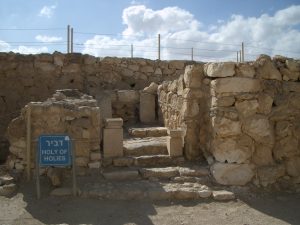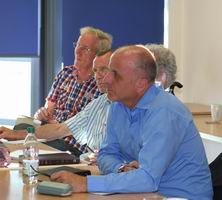THE CORPORATE COMMUNITY
These are serious times. Serious times call for something more.
In early 1996 I wrote:
“A time is coming soon when there will be changes in the infrastructures of the world’s systems that will create  reversals resulting in discontinuities such as the world has never seen. In the same manner that Joseph the patriarch was sent ahead to prepare for what was coming to the earth, God is today sending individuals ahead to prepare for a time of great change that will precede the shift of all ages. These will be individuals who clearly hear God’s voice and who possess a unique understanding of the times, who will be thrust into positions of influence within the economic, governmental and business infrastructures that guide the course of world events.”
reversals resulting in discontinuities such as the world has never seen. In the same manner that Joseph the patriarch was sent ahead to prepare for what was coming to the earth, God is today sending individuals ahead to prepare for a time of great change that will precede the shift of all ages. These will be individuals who clearly hear God’s voice and who possess a unique understanding of the times, who will be thrust into positions of influence within the economic, governmental and business infrastructures that guide the course of world events.”
A dynamic unique to our times points to the “something more” that is needed. Fifty three of the top one hundred economies in the world are corporations (Global, Inc., Gabel and Bruner, 2003, The New Press, New York).
With a handful of corporate giants controlling most of the world’s energy, technology, banks, industry, food, and media, this means there are corporations that function as kingdoms, with amazing resources at their command.
In view of the political, social and economic framework that we unconsciously depend on for our future, this dynamic unlocks a remarkable dimension to understanding the role of this generation’s emerging Josephs. It represents an extraordinary potential to navigating through challenging times.
As Egypt served during a time of great famine in the days of Joseph, so there will be economic-community havens immune to the prevailing disruptions. They will be driven by unconventional alliances, not unlike what operated between Pharaoh and Joseph. They will function as communities of refuge and serve overriding Kingdom purposes.
The Corporate Community Model
At turning points to the destiny of God’s people, the Lord has appointed oases, places of refuge that facilitate His overriding Kingdom purposes. Select corporations, the size to be an economy, will align with modern-day Josephs and conform to the age-old biblical model of community to become gateways and shelters from the storm.
The secular-Kingdom paradigm between Joseph and Pharaoh is a model for times of change. The combination of righteous influence (hatz’dakah) and the power of self-sustaining enterprise-communities will bring increase and blessing that extend far beyond their own boundaries. They likewise will provide safe-havens for Kingdom pathways in otherwise hostile environments.
What is frequently referred to as the “global community” has embraced its political, economic and social assumptions on a top-down model that has become increasingly isolated from its bottom-up foundations. From an organizational and market stance, this is a source of mounting instability.
 The Word of God clearly outlines a bottom-up foundation. When an entity loses touch with its bottom-up foundations, it will begin to wobble. Economically, the imbalance created by an unhealthy top-down focus will eventually destabilize the entire system.
The Word of God clearly outlines a bottom-up foundation. When an entity loses touch with its bottom-up foundations, it will begin to wobble. Economically, the imbalance created by an unhealthy top-down focus will eventually destabilize the entire system.
The dynamic of corporate community is key to stability. Stability that stands strong against the destructive forces of change will result from a healthy top-down, bottom-up balance. Entrepreneurship provides that balance. Key elements of God’s DNA, to create, innovate, build and bring increase, are at the heart of God’s gift of entrepreneurial community. When entrepreneurship and community are rightly aligned and God-centered, they represent the relational and economic balance through which God’s blessings are allowed to flow in a societal context.
Many multinational corporations are community-minded, but far too often swayed by politically-correct spheres of influence. The influence needed to navigate the turbulence of our day will come from Joseph-type alliances. When combined with the bottom-up framework of rightly aligned, smaller, self-sufficient support enterprises, then the top-down shelter of corporate community will result.
When it does, it represents the basis for the proactive response to times of famine and change: the “safe havens;” the ability to bypass disaster; and the approach to bring increase and blessing in spite of the adversity.
The Pathway of the Undefiled
There was a reason Joseph was chosen from among his brothers to be sent ahead. Despite his status when a slave and then a prisoner; Joseph’s heart was always that of a king. He was undefiled by the iniquities gripping his brothers. What he took to Egypt was a pure heart that heard from God. What the Egyptians saw was a man, who despite the adversity of his situation bestowed the blessings of God on those he served. When Joseph was a slave in Potiphar’s household he was described in this way:
“The Lord was with Joseph and he was a successful man; and everyone saw that the Lord was with Joseph and made all that he did to prosper.” Genesis 39:2-3
Joseph’s pathway to the palace was one of humility, an identity in God, service to the community and excellence.  Joseph was one clearly counted among the ‘Tzadikim,” the righteous who are recognized as making a difference for the community.
Joseph was one clearly counted among the ‘Tzadikim,” the righteous who are recognized as making a difference for the community.
This community dynamic of “tz’dakah,” charitable righteousness, became the basis on which the granaries became the source of life during the famine, for not only Egypt, but the world around them. In the process it also became the sanctuary for the birthing of the next step for what the Lord intended to do through His chosen people.
Issues for Influence
There is no question that we face a time of preparation as the assumptions guiding the global community teeter. Persecuted segments of the Body can offer great insight into the priorities and strategies that enable God’s people to first survive and then find opportunity in times of crisis. Joseph’s influence in Egypt progressively reflected the wise combination of key alliances, new mind-sets, trust, resource application and God-anointed leadership.
Alliances. The choice of alliance will always allow God at the center, without promoting religious convention. The God-centered focus will pivot on the practical benefits to those directly involved. Given full reign, this type of alliance will spill over to bless those around it. In short, these are alliances that operate on the basis of community as God intended, with realignments from the hindrances of business as usual.
Mind-Sets. Jesus taught that unless we become as little children, we will by no means enter the Kingdom of God. In addition to humility, children think outside the box. The wonder of life remains such that for most small children, nothing is impossible. Faith begins with our thinking, our mind-sets.
Pathways that may appear as unconventional will challenge prevailing mind-sets. Joseph’s alliance with Pharaoh was an unorthodox departure from the way Jacob’s community had previously operated with the world around them. So it is that we’ve entered a time that will separate man’s doctrines from God’s principles.
Trust. A major factor operating for Joseph was trust. Joseph was no doubt creative and innovative. Yet he was a most unlikely candidate to be entrusted with the level of authority he was given at each stage in his tenure in Egypt. There was more to it than his character or abilities. Joseph earned the trust of the Egyptians by consistently releasing the blessings of God to the benefit of the community around him.
 Resources. Community cannot function properly without the self-supporting flow of resources. There existed an antagonistic response to outsiders by both Jacob and Joseph’s brothers. While called to be a light shining in the darkness; to be blessed to be a blessing, they fell short. God’s extraction to place Joseph in the heart of Egypt was totally out of sync with the prevailing religious mind-sets. Yet, it placed Joseph amid a people with whom he had great favor, along with the resource- and power-base needed for the coming crisis.
Resources. Community cannot function properly without the self-supporting flow of resources. There existed an antagonistic response to outsiders by both Jacob and Joseph’s brothers. While called to be a light shining in the darkness; to be blessed to be a blessing, they fell short. God’s extraction to place Joseph in the heart of Egypt was totally out of sync with the prevailing religious mind-sets. Yet, it placed Joseph amid a people with whom he had great favor, along with the resource- and power-base needed for the coming crisis.
Leadership. His God-centered leadership demonstrated a significant part of Joseph’s role. Joseph always found the common ground from which God was openly acknowledged and released in his service to the Egyptians. Leadership involves influence and influence is based on trust. True leadership is the ability to turn insight, inspiration and intention into reality without controlling, manipulating, domineering or forcing. At each stage during his time in Egypt, Joseph broke the mold in the way he mobilized people and resources to the benefit of those around him. When the opportunity presented itself, Joseph demonstrated the leadership needed to mobilize the entire community of Egyptians for a time of crisis.
The Corporate Community Mantle
During the middle-ages power rested in the hands of the few. The feudal system of those days was based on a view that the populace were sheep to be herded and then shorn in due season. Three classes of people existed: the nobility or ruling class; the clergy; and the common folk. The nobility were men who had a duty to protect the others; the clergy served to maintain the souls of the members of society; and beneath both were the commoners, whose role it was to labor and by their efforts to feed the others.
Within the world today is a parallel. It thrives on the premise that if given the freedom, most people will imitate someone else. Yet, blind obedience is not the standard for God’s people. Contemporizing God’s truth to “become like everyone else” will only cycle into falling short. God’s intention for His people has long been to make them “the head rather than the tail.” His purpose for His own is to “lend to many nations and not borrow.”
The Kingdom of God will not be built apart from community and enterprise. Weathering the winds of change will not happen apart from defining the identity and leadership needed for the corporate community mantle.
happen apart from defining the identity and leadership needed for the corporate community mantle.
Before us are cyclic times that foreshadow great change. Simultaneously the shift underway will unveil gateways to unusual alliances that excel against adversity in the face of the gathering storms.
For us to assume our role as the people of God there is a clarion call for the Joseph-Daniel type of leadership, along with understanding and applying the biblical framework for community. Both pivot on the admonition from Exodus 15 that provides the key to bypass destruction: “Listen carefully to the voice of the Lord your God and do what is right in His eyes…” From Noah to Joseph to Moses to David to the first-century believers, each of whom gave birth to the new thing God was doing for their time, the leadership they exhibited pivoted on hearing the voice of the Lord.
So it is today. Leadership will be defined by those who hear. Community will be defined by those who lead. Those who hear and those who lead will restore the age-old biblical foundations and the true identity and calling that we, as God’s people, will use to form alliances and extend God’s blessings to the staggering world around us.
“Then the kingdoms of this world will become the kingdoms of our Lord and he shall reign forever.” Rev.21: 10
___________________________________________________
This article was originally posted on SIGN in February of 2009 and subsequently became a chapter (24) in Mr. Ruddick’s “The Heart of a King.” As the spiritual challenges globally increase, so does the importance of designing Kingdom models and strategies to make an impact.
Morris Ruddick has been a forerunner and spokesman for the higher dimensions of business leadership since the mid-90s. As founder of Global Initiatives Foundation and designer of the God’s Economy Entrepreneurial Equippers Program, Mr. Ruddick imparts hope and equips economic community builders to be blessed to be a blessing where God’s light is dim in diverse regions around the globe.
He is author of “The Joseph-Daniel Calling;” “Gods Economy, Israel and the Nations;” “The Heart of a King;” “Something More;” “Righteous Power in a Corrupt World;” “Leadership by Anointing;” and “Mantle of Fire,” which address the mobilization of business and governmental leaders with destinies to impact their communities. They are available in print and e-versions from www.Amazon.com, www.apple.com/ibooks and www.BarnesandNoble.com.
Global Initiatives Foundation (www.strategic-initiatives.org) is a tax-exempt 501 (c) 3 non-profit whose efforts are enabled by the generosity of a remnant of faithful friends and contributors whose vision aligns with God’s heart to mobilize economic community builders imparting influence and the blessings of God. Checks on US banks should be made out to Global Initiatives and mailed to PO Box 370291, Denver CO 80237 or by credit card at http://strategicintercession.org/support/
Likewise, email us to schedule a seminar for your group’s gathering on the Joseph-Daniel Calling or on anointing the creative in business.
2017 Copyright Morris Ruddick — info@strategic-initiatives.org
Reproduction is prohibited unless permission is given by a SIGN advisor. Since early 1996, the Strategic Intercession Global Network (SIGN) has mobilized prophetic intercessors and leaders committed to targeting strategic-level issues impacting the Body on a global basis. For previous posts or more information on SIGN, check: http://www.strategicintercession.org

